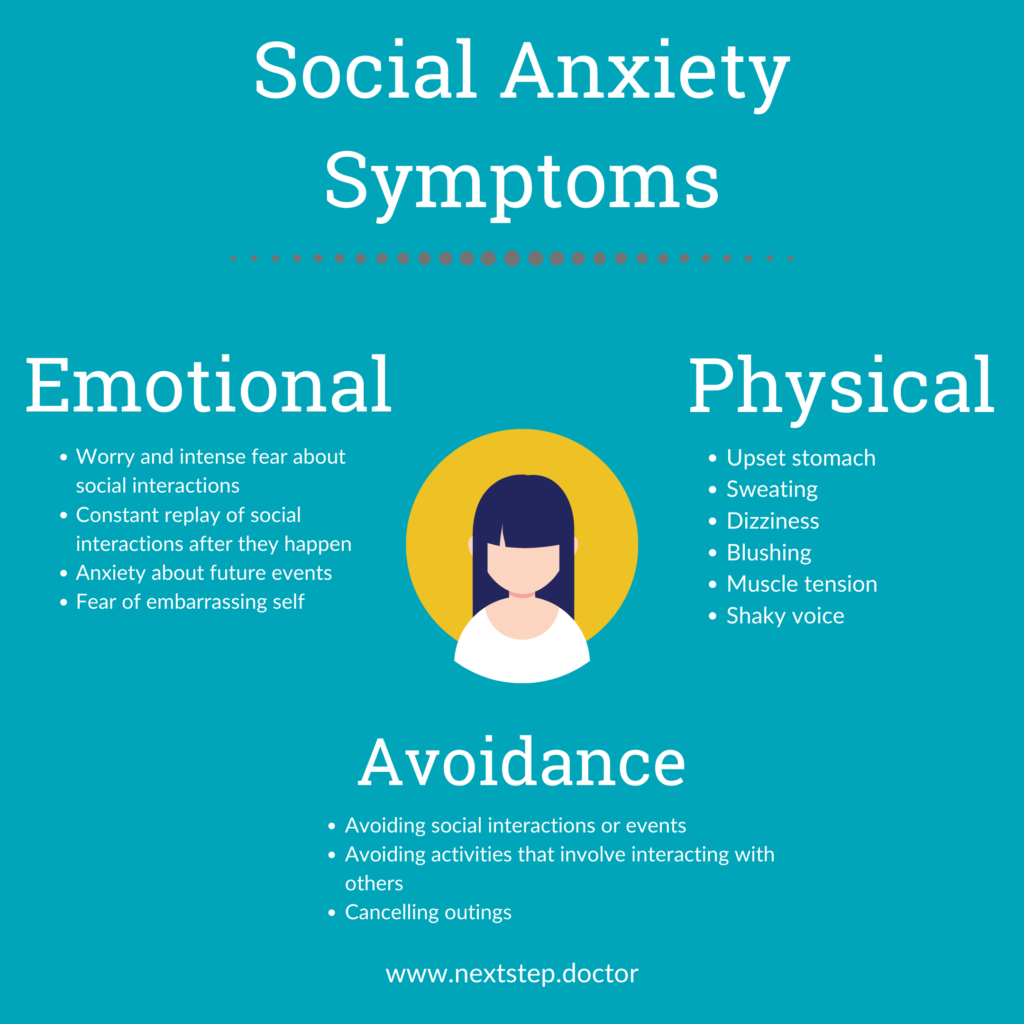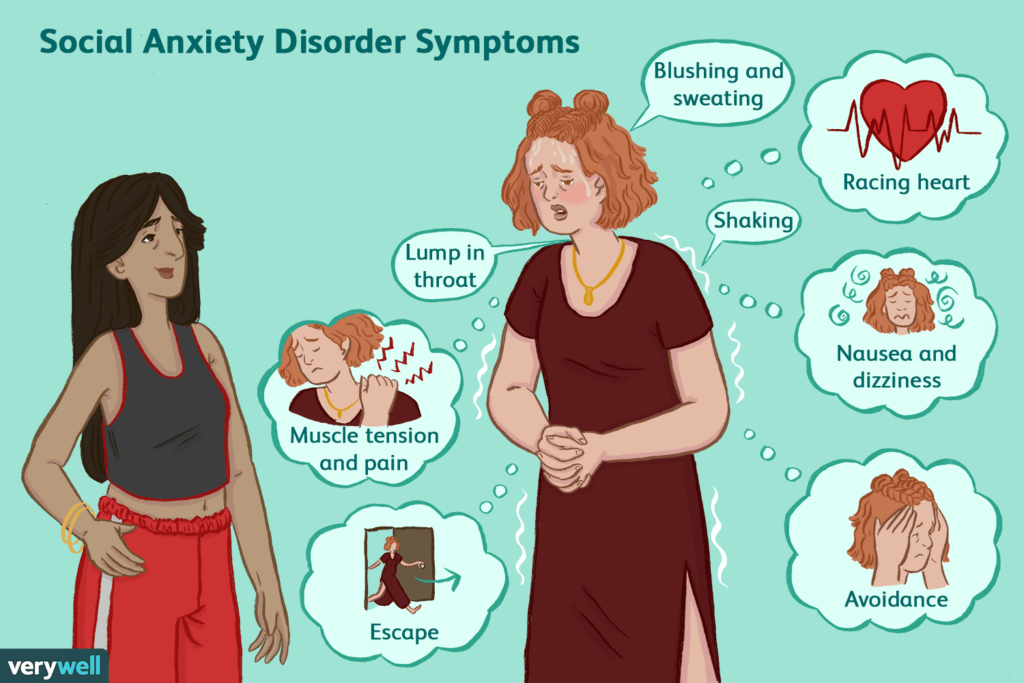A Quick Guide
Social phobia, also known as social anxiety, is an intense fear of being judged or scrutinized by others, leading to severe anxiety in social situations. Signs include fear of being observed, avoidance of social situations, and impairment in daily functioning. Associated features may include performance anxiety, anticipatory anxiety, and self-medication as a coping strategy.
Introduction
Try to recall your first job interview/your first viva/your first public presentation. Remember how you felt at the time. Were you confident? Anxious? Terrified? Worried about how you looked?. You must have had a thousand thoughts running through your mind. Such as ‘Do I look stupid?’, ‘I’m afraid I’ll mess up’, ‘I will surely embarrass myself’, ‘What if I fail?’. And of course, how can you ignore those funny sensations in your body? Especially, the clammy hands, sweaty armpits, and that pounding heart. Those trembling legs and how you uncontrollably blushed when you accidentally fumbled on your words.
You have my deepest sympathies. Surely, that must have been a terrifying experience. Rest assured, almost all of us experience this at some point in our life. Since it’s completely natural to feel vulnerable in new situations. However, there are people who feel like this in almost every social situation. In other words, they suffer from a condition called ‘social phobia’.
What is social phobia?
Social phobia is an intense fear of being judged by others. So much so that it triggers a severe anxious response in social situations involving evaluation by others. This includes all the scary emotions, catastrophic thoughts, and physical reactions of the body stated above. Such individuals do everything in their power to avoid anxiety-inducing social situations. Due to this, their personal, social, academic, and occupational life suffers greatly.
Signs of social phobia

If you want to identify whether you have social phobia, look out for the following signs:
- Intense fear or anxiety of situations in which there is a chance of being scrutinized by others. For example, meeting new people, giving a speech, eating out, etc.
- Fear of being observed and performing in front of others.
- Concerns about being negatively evaluated/judged or rejected by others.
- Worrying about showing physical anxiety symptoms in public e.g. blushing, sweating, trembling voice, shaky legs.
- Such social situations always trigger an anxiety response.
- Avoidance of social situations or enduring them with extreme difficulty.
- The fear response is out of proportion to the nature of the threat.
- The above symptoms occur for at least six months or more.
- The individual experiences extreme distress and impairment in social, occupational, academic, and daily functioning due to social anxiety.
- The above symptoms cannot be explained by a medical disease, side effects of a substance/ medication, or some other mental health condition.
Associated Features of social phobia

Some people also exhibit the following signs:
- Children exhibit social anxiety or social phobia through crying, tantrums, clingy behavior, not speaking in social situations, or shrinking away.
- Some people have performance anxiety. They are normal in everyday social situations. But performance activities like giving a public speech / presenting to a group of people etc. induce anxiety in them.
- Avoidance strategies may be adopted to prevent the anxiety response. For example, such people may stop eating out in public, call in sick, or rely on others to take charge. Etc
- Anticipatory anxiety about upcoming social situations may also occur. The person may worry two 2-3 weeks in advance about the social situation and come up with strategies to avoid it.
- Such people overestimate the possibility of negative consequences.
- People with social anxiety may either be highly submissive or assertive. They may show inadequate eye contact, speak in a low tone, and have a rigid body posture.
- With respect to temperament, they are usually shy and do not open up to people.
- They may choose jobs that involve limited social exposure.
- The majority of them live at home most of the time.
- Some people may even delay marrying to avoid their anxiety.
- Self-medication is a common coping strategy among people with social phobia.
- Blushing is another important sign of social phobia.
- Older adults with social anxiety may experience exacerbating medical illnesses like tachycardia or tremors when the anxiety response is triggered.
Social anxiety can be a terrifying condition. If you know anyone experiencing such symptoms, offer them your support to deal with distress and recommend them to get professional help. If you yourself experience social anxiety and want to know more about The cycle of social phobia: What keeps it in a loop? read the article on our website.



 Autism Spectrum Disorder ASD & Anxiety: What’s the link?
Autism Spectrum Disorder ASD & Anxiety: What’s the link?  Post-Lockdown Social Anxiety & 8 ways to cope with it
Post-Lockdown Social Anxiety & 8 ways to cope with it